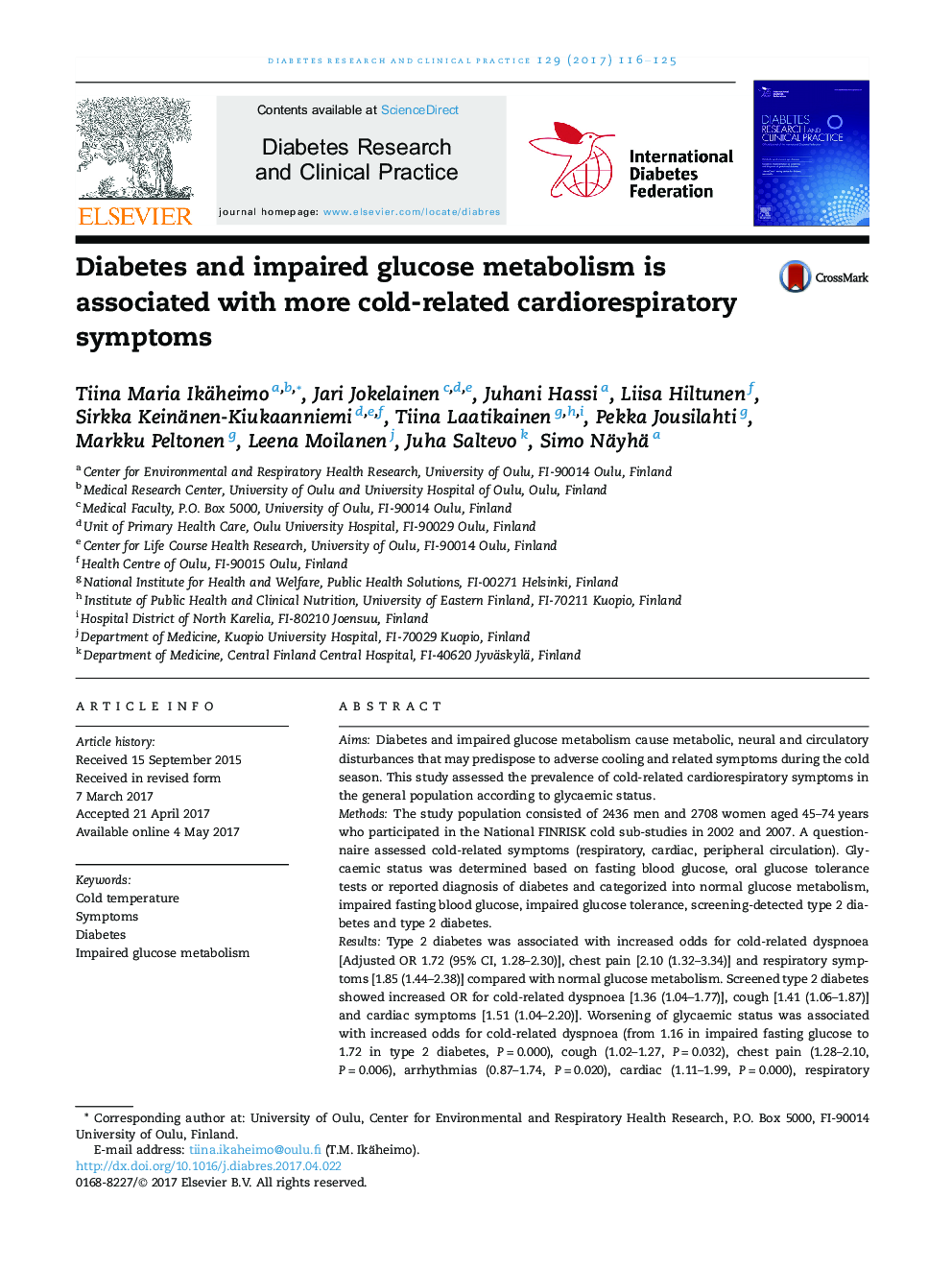| کد مقاله | کد نشریه | سال انتشار | مقاله انگلیسی | نسخه تمام متن |
|---|---|---|---|---|
| 5587377 | 1568786 | 2017 | 10 صفحه PDF | دانلود رایگان |
- Diabetes is a strong determinant for the occurrence of cardiorespiratory symptoms during the cold season.
- People with impaired glucose metabolism report more cold-related cardiorespiratory symptoms.
- Subjects with diabetes and pre-diabetes need instructions for proper protection from cold weather.
AimsDiabetes and impaired glucose metabolism cause metabolic, neural and circulatory disturbances that may predispose to adverse cooling and related symptoms during the cold season. This study assessed the prevalence of cold-related cardiorespiratory symptoms in the general population according to glycaemic status.MethodsThe study population consisted of 2436 men and 2708 women aged 45-74Â years who participated in the National FINRISK cold sub-studies in 2002 and 2007. A questionnaire assessed cold-related symptoms (respiratory, cardiac, peripheral circulation). Glycaemic status was determined based on fasting blood glucose, oral glucose tolerance tests or reported diagnosis of diabetes and categorized into normal glucose metabolism, impaired fasting blood glucose, impaired glucose tolerance, screening-detected type 2 diabetes and type 2 diabetes.ResultsType 2 diabetes was associated with increased odds for cold-related dyspnoea [Adjusted OR 1.72 (95% CI, 1.28-2.30)], chest pain [2.10 (1.32-3.34)] and respiratory symptoms [1.85 (1.44-2.38)] compared with normal glucose metabolism. Screened type 2 diabetes showed increased OR for cold-related dyspnoea [1.36 (1.04-1.77)], cough [1.41 (1.06-1.87)] and cardiac symptoms [1.51 (1.04-2.20)]. Worsening of glycaemic status was associated with increased odds for cold-related dyspnoea (from 1.16 in impaired fasting glucose to 1.72 in type 2 diabetes, PÂ =Â 0.000), cough (1.02-1.27, PÂ =Â 0.032), chest pain (1.28-2.10, PÂ =Â 0.006), arrhythmias (0.87-1.74, PÂ =Â 0.020), cardiac (1.11-1.99, PÂ =Â 0.000), respiratory (1.14-1.84, PÂ =Â 0.000) and all symptoms (1.05-1.66, PÂ =Â 0.003).ConclusionsSubjects with diabetes and pre-diabetes experience more cold-related cardiorespiratory symptoms and need instructions for proper protection from cold weather to reduce adverse health effects.
Journal: Diabetes Research and Clinical Practice - Volume 129, July 2017, Pages 116-125
